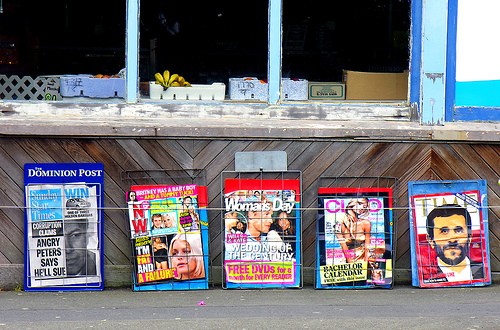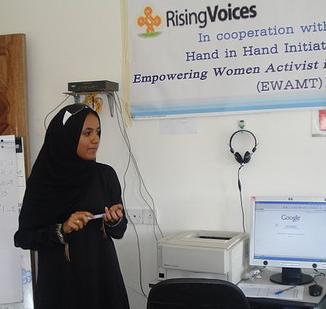Only a couple of months ago Théophile Kouamouo from Ivory Coast, one of Francophone Africa's leading bloggers, and the project leader of the Rising Voices grantee Abidjan Blog Camps was arrested for protecting a source for an investigative newspaper report on a public interest issue. He was later released and he thanked his blogging friends all over the world for support.
Janice Winter at Axess Programme on Journalism and Democracy tells about the threats to public interest journalism and protecting sources in Africa:
I have spent the last few weeks in South Africa interviewing journalists and editors about both the gains of our media freedom and concerning signs of regressive state legislation, such as the proposed Public Service Broadcasting Bill that – if passed – would make the public broadcaster effectively a state broadcaster directly accountable to Minister of Communications.
In an analytical piece in his own blog Théophile writes [fr] why true public interest journalism is urgently required in Africa:
Some critics believe that journalism should be made public in a neutral news and stop there. Among them, former French Prime Minister Michel Rocard, who was criticized in an interview with the weekly Marianne (quite outspoken against Nicolas Sarkozy), to act “not as pure news reporters, but as actors of policies. This criticism has often been done in the Ivorian press.
What is journalism? Probably the door ajar to provide worlds often closed to increase the wealth of folk knowledge about the contemporary world, as it will or will not. Are we to accomplish this task? In any case, it seems clear that, in our skies, and in the print media in particular, we “over-cover” a certain type of news. One related to policy, including its size and the politician most people and sport, topics that attract a wide readership within our small middle class that can provide enough money to buy newspapers. We neglect serious events, including the unveiling could build our contemporaries, and push them to act for a number of social changes. Our failure to us, private media, is amplified by the fact that the public media, at home, remain sounding power or entertainment spaces vampired completely by advertising. (machine translation)
Théophile continues [fr]:
It is urgent to raise a public interest journalism. In a context where the separation of powers at times seems like a figment of the imagination, as the reflexes of allegiance and connivance of one-party legacy is strong, our role is, more than ever to track the failures of society, to rescue citizens voiceless victims of injustice hidden investigate patiently on topics of general interest. [..]
Is there or elsewhere in our skies patrons may fund a type of journalism whose main interest is to arouse and to change society by revealing its dark? (machine translation)
Martin Moore at British Journalism Review explains public interest journalism:
Public-interest journalism has two elements. The first is as a watchdog, holding the powerful to account, exposing fraud, deceit, corruption, mismanagement and incompetence.
The second element of public-interest journalism is much less discussed, yet in many ways more important, especially in our world of information overload. This is the responsibility to inform, explain and analyze. Public interest journalists find, digest and distill information that helps the public form views and make decisions. How do I know, for example, whether or not I should give my child a multiple vaccination? How much should I worry about the H5N1 virus and should I take action? Is Iran about to develop a nuclear arsenal and, if so, what should we do about it? Is my mobile phone going to give me a brain tumor? Our world is increasingly inter-related and complex and we need news media that genuinely seek to explain, rather than frighten, hector or bully.
Martin Moore asks:
So if the Government is perverting the course of public-interest journalism, business is quite happy to promote private not public interest, and the public remains blissfully unaware, can the media protect the public interest?
Professor Jay Rosen of New York University, argues
If markets replace public as the only relevant arena in contemporary society, we're all sunk. What we do won't matter, what they do won't matter. Only the TV ratings will matter.
If public-interest journalism should be protected, it has to be promoted and nurtured. An way out may be efforts like ProPublica, a non-profit corporation based in New York City, which won a Pulitzer price this year for its report on public interest. We hope to see efforts like this in Africa soon as Théophile points out that they are urgently required.


![prorepublica [640x480]](https://rising.globalvoicesonline.org/files/2010/09/prorepublica-640x480.jpg)



3 comments